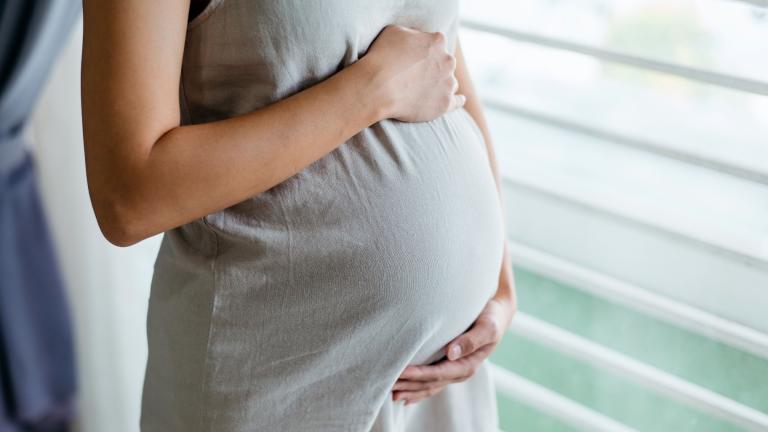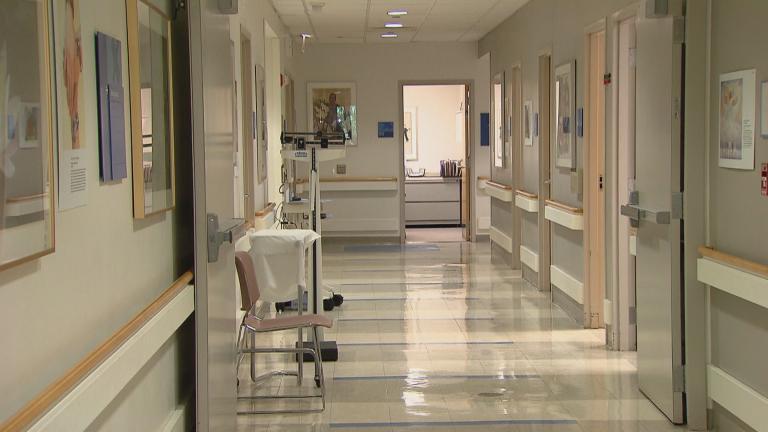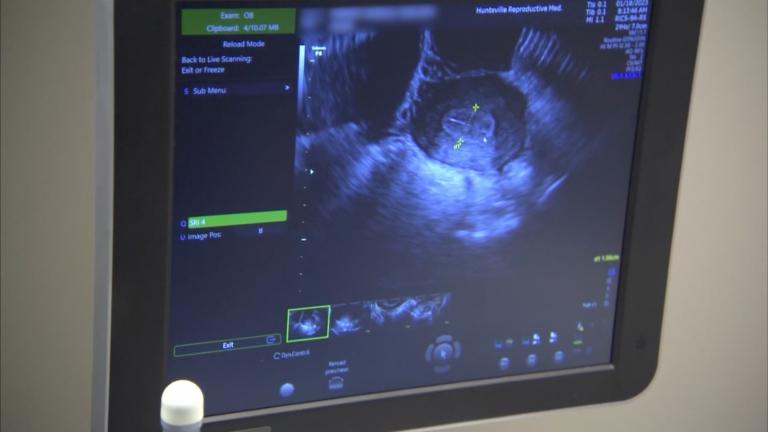Video: “Chicago Tonight” discusses the report with Shannon Lightner and Dr. Robin Jones. (Produced by Paul Caine)
Each year, an average of 75 women in Illinois die within 12 months of pregnancy, according to the Illinois Department of Public Health.
In 2016 and 2017, 175 women died across the state, with 103 deaths occurring in 2017 alone – the highest number recorded in a year, according to the second Illinois Maternal Morbidity and Mortality report, which found 83% of pregnancy-related deaths could have been prevented.
“Reviewing and addressing maternal mortality is important because it’s a key indicator of the well-being our community and can reflect trends overall in the health of women of reproductive age,” said IDPH Director Dr. Ngozi Ezike during a Thursday news conference.
The first report, issued in 2018, found that Black women were six times as likely to die of pregnancy-related conditions than their white counterparts. The latest report found that gap has shrunk, but Black women are still three times as likely to die than whites.
“While the disparity has narrowed for pregnancy-related deaths between Black and white women, it is not due to conditions improving for Black women. But it is instead due to worsening conditions for white women, especially due to mental health conditions, including substance use disorder and suicide,” said Ezike.
These “unacceptable disparities” are due to systemic racism, said Dr. Robin L. Jones, who chairs the Maternal Mortality Review Committee.
“It is critically important to emphasize that our unacceptable disparity in pregnancy-related mortality is not due to a woman being Black. It is not due to biologic factors,” she said. “We will not have a health system that promotes health equity and delivers quality outcomes until we better understand the role that racism plays in maternal mortality and until we develop recommendations to address it.”
The leading cause of pregnancy-related death was mental health conditions, including substance use disorders which accounted for 40% of such deaths, according to the report. Mental health conditions accounted for the majority of deaths among white (64%) and Hispanic women (56%) but only 13% of deaths among Black women, according to the report.
After mental health conditions, the next three most common causes of pregnancy-related death were pre-existing medical conditions that were exacerbated by pregnancy such as lupus and sickle cell disease, hemorrhage and hypertensive disorders of pregnancy.
Those three categories only accounted for 3% of deaths in white women, but were responsible for 46% of deaths among Black women and 33% of deaths among Hispanic women. Of the five deaths due to pre-existing chronic medical conditions, all of them occurred in Black or Hispanic women, and all five hemorrhage deaths occurred in Black women, according to the report.
One-third of pregnancy-related deaths each occurred during pregnancy, during the first 60 days of postpartum and more than 60 days postpartum, according to the report.
“This is a key finding showing that women are dying outside of that 60-day window when Medicaid traditionally ends,” said Shannon Lightner, deputy director for IDPH’s Office of Women’s Health and Family Services. “Expanding Medicaid to one year postpartum is a concrete example of how our recommendations have led to public health policy that has the power to impact maternal health outcomes.”
The report also includes case studies of women who died and provides recommendations for hospitals, health care providers and the state of Illinois to implement, as well as recommendations for women and their family and friends.
One such recommendation was to have hospitals establish policies and protocols to ensure appropriate treatment of pregnant or postpartum women with substance use disorders and support opioid overdose prevention.
The report also recommends providers seek consultation when prescribing, changing or discontinuing anti-depressants or other psychotropic medications during pregnancy and that they ensure the patient is connected to mental health services in addition to medication.
Other recommendations include expanding home visiting programs for all women within three weeks of giving birth and doula support, ensuring all women after delivery are discharged from the hospital with an appointment for an early postpartum visit within the first three weeks, and educating women on the importance of getting prenatal care early in pregnancy to improve health outcomes.
“While the numbers of maternal death are small, we know that there are any more women who suffer from maternal morbidity in some cases severe and even potentially life-threatening unexpected maternal conditions or complications that occur during labor and delivery,” Ezike said. “By improving care for pregnant and postpartum women, we hope to not only address maternal mortality but also to improve maternal health outcomes overall.”
Contact Kristen Thometz: @kristenthometz | (773) 509-5452 | [email protected]
Note: This story was originally published April 30, 2021. It has been updated to include our “Chicago Tonight” conversation.








